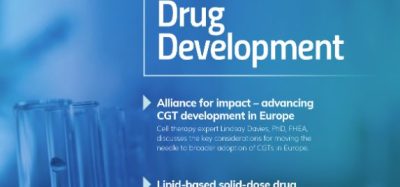Developing easy-to-swallow medicine for children
Posted: 20 March 2019 | Iqra Farooq (European Pharmaceutical Review) | No comments yet
A study has revealed an in vitro method that could screen various compounds, identifying ones that would make swallowing medicine easier…


A study has compared traditional sensory tests and an in vitro method that could explain why smaller multiparticles would ease the journey from mouth to throat into the body.
The test allowed scientists to screen different compositions of the carrier liquid, and the composition of the particles in order to make swallowing easier.
Co-author of the study and Senior Lecturer at the University of Surrey, Dr Marco Ramaioli, said: “Many young children and older people find conventional tablets hard to swallow – making it difficult for them to complete drug therapy. We hope that this in vitro method, together with sensory tests, will help to develop novel medicines that could improve the lives of many people across the world.”
Professor Catherine Tuleu at the UCL School of Pharmacy said: “It is exciting to see advancements in age appropriate medicine design such as multiparticulate systems but successful therapeutic outcomes rely on the development of appropriate administration vehicles.”
Dr Mine Orlu, also from UCL School of Pharmacy, added: “The availability of predictive models to characterise the promising formulation platforms early during medicine development is key to producing medicines that are easier to take for patients with different swallowing capabilities.”
The study was published by the European Journal of Pharmaceutical Sciences.
Related topics
Analytical techniques, Clinical Development, Drug Development, Manufacturing, Research & Development (R&D)









